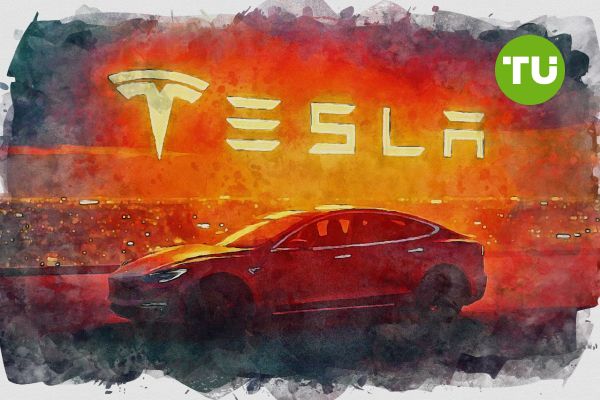Tesla stock slides nearly 5% amid Musk–White House spat over tariffs
 Tesla’s share price movements have been heavily influenced by broader macroeconomic factors
Tesla’s share price movements have been heavily influenced by broader macroeconomic factors
As of April 9, 2025, Tesla Inc. (TSLA) is trading at $221.86, reflecting a decline of approximately 4.9% from the previous close.
The stock has exhibited considerable volatility over recent sessions, driven by macroeconomic events and company-specific commentary. From a technical standpoint, Tesla is trading below both its short- and long-term trend indicators. The 50-day moving average is currently around $240, while the 200-day moving average stands near $260. The breach of both these key moving averages signals a continued bearish momentum in the short to medium term.
The Relative Strength Index (RSI), a momentum oscillator that measures the speed and change of price movements, is hovering around 45. This level indicates Tesla is approaching oversold conditions, though not yet in the classic oversold territory below 30. If RSI dips further, we may see increased buying interest. Immediate support is seen at $215, a level that has previously held firm during selling pressure in early March. A breakdown below this level could open the path to the psychologically important $200 mark. On the upside, Tesla faces near-term resistance at $230, a level that aligns with the 20-day EMA and was rejected several times in past sessions.
TSLA stock price dynamics (February 2025 - April 2025). Source: TradingView.
Additionally, trading volume has been declining slightly during recent pullbacks, which may suggest weakening bearish conviction. However, confirmation of a trend reversal would require a breakout above the $230 level with strong volume and a reclaim of the 50-day moving average at $240.
Market context and recent developments
Tesla’s share price movements have been heavily influenced by broader macroeconomic factors and political developments. On April 9, the White House implemented aggressive new tariffs targeting several nations, including a 104% tariff on Chinese imports. The market responded with risk-off sentiment, leading to a 1.6% decline in the S&P 500 and a 2.1% drop in the Nasdaq. These trade tensions have introduced fears of a global economic slowdown, particularly in sectors reliant on complex supply chains like automotive manufacturing.
Elon Musk, Tesla’s CEO, has been particularly vocal about the ramifications of these tariffs. In a public spat, Musk called former Trump trade adviser Peter Navarro “dumber than a sack of bricks” after Navarro accused Tesla of relying heavily on imported components. Musk responded by reiterating Tesla’s commitment to vertical integration and its significant manufacturing footprint within the U.S., including battery and vehicle production. He further criticized the new tariffs, suggesting they could disrupt international supply chains and harm U.S. competitiveness.
Musk also proposed that the U.S. and European Union should create a zero-tariff trade zone, arguing that punitive tariffs ultimately hurt innovation and the global economy. His comments came during a broader backlash from industry leaders concerned about retaliatory measures and increased costs for materials and components.
TSLA price scenarios
Given Tesla’s current technical posture and the macroeconomic environment, short-term downside risk persists. Should Tesla breach the $215 support, further declines toward the $200 zone appear likely, especially if the broader market continues to react negatively to trade tensions. However, if bulls can regain momentum and push the price above $230, a move toward the $240 resistance zone is probable. Investors should closely monitor updates related to global trade policy and Tesla’s strategic responses. Developments such as tariff rollbacks, new partnerships, or production milestones could rapidly shift market sentiment. For now, the risk-reward ratio favors caution, but opportunities may emerge if Tesla successfully navigates the current macro headwinds.
Earlier this week, Wedbush analyst Dan Ives cut his 12-month price target for Tesla by 43%, from $550 to $315, marking a sharp shift in sentiment from one of Tesla’s longtime bulls. Ives cited growing concerns over the brand's politicization, driven by CEO Elon Musk’s increasingly controversial public statements.













































































































































